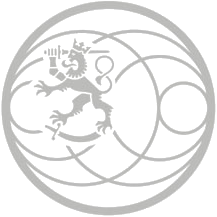Development cooperation involves risks. Anticipating and managing them is essential to the implementation of development cooperation.
Both the need for assistance and the risks are pronounced in fragile states and conflict zones, where an increasing proportion of Finland’s development assistance and humanitarian aid has been channelled in recent years. However, in terms of humanitarian, political and economic considerations, doing nothing would be an even higher risk. The impacts of negative development are felt over wide areas and, indirectly, they also affect Finland.
Risk management is continuously developed. The Ministry for Foreign Affairs will prepare a risk management policy, in which the ministry’s procedures, roles and responsibilities will be defined more clearly. At the same time, it will also be ensured that the personnel have enough time and competence to identify and anticipate risks and mitigate their impacts.
1. Risks are taken into account in country strategies
Finland’s work with bilateral cooperation in developing countries is guided by country strategies. Country-specific risk assessments are considered in programme planning and implementation of the strategies, and the situation with the risks are reported annually.
In the reports on 2017, weak administrative structures, corruption and security problems in the partner countries, as well as the threat of terrorism in some of them were highlighted as the most common risks arising from the operating environment. The threat of terrorism was seen critical in some countries. Weakening of the human rights situation was also seen as a risk. Cuts in Finland’s development funding were deemed to negatively affect the impact of the Finnish work.
For example, the military operation launched in Northern Rakhine in August 2017 and the ensuing humanitarian crisis have forced Finland to adjust its cooperation with Myanmar. The situation has also had an impact on the relations between donors and the Myanmar Government. The UNFPA project supported by Finland was, however, able to continue in the Rakhine State with a low profile by relying on its grassroots partners and to help the women affected by the violence.
2.Work in South Sudan was stopped by a conflict
A conflict or a war may even lead to total cancellation of plans. This is what happened in South Sudan where the Ministry for Foreign Affairs has provided funding for a water and sanitation programme in cooperation with the German KfW Development Bank since 2012.
A total of EUR 18 million of Finland’s contribution had already been transferred to the KfW Development Bank. Then the armed conflicts spread to the towns included in the programme and the work had to be stopped. The competitive tendering for new construction projects was about to start in 2016 when the project personnel had to be evacuated.
The region has remained unstable ever since. Even though the security situation has occasionally been better it has been impossible to start any of the construction contracts. EUR 11.2 million of the Finnish contribution has remained unused and the money will be returned to Finland.
3. New ways of safeguarding international organisations’ activities
Incidents in which aid workers had misused their position in the aftermath of the earthquake in Haiti hit international headlines in autumn 2017. These cases of sexual harassment and exploitation prompted international civil society organisations and the UN to review their own practices. Finland took part in the process as one of the donors.
The United Nations has tightened its guidelines concerning the eradication of sexual harassment and exploitation. It has also introduced more effective measures to implement them and created new means to report the cases. Training on these matters is now obligatory for all employees.
Organisations engaged in humanitarian cooperation that are supported by Finland must have the partner status granted by the Directorate-General for European Civil Protection and Humanitarian Aid Operations (ECHO). ECHO audits the organisations’ financial reporting, accounting and audit practices and ensures that the organisations’ internal control and their mechanisms for dealing with corruption and misuse are properly managed.
4. Suspected cases of misuse are investigated
A total of 63 cases involving suspected misuse of funds were reported to the ministry between 2015 and 2017. In cases involving a suspected offence, such as fraud or embezzlement, the investigation is carried out by the National Bureau of Investigation in cooperation with the investigation authorities of other countries. Recovery decisions concerning slightly more than one million euros were made in the decisions concern both misused and unused funds.
In 2018, the National Bureau of Investigation has been investigating a suspected case of online fraud involving a legal sector project jointly run by Finland and the United Nations Development Programme (UNDP) in the Kyrgyz Republic. The investigation concerns a payment of EUR 400,000 made by Finland to the programme in February 2018, a part of which has ended up on wrong accounts. It not a question of misuse of programme funds as the suspect is a professional cybercriminal unconnected with the programme. The investigation is still in progress but some of the funds have been returned to Finland.
Next section: External evaluations >
Read more:
